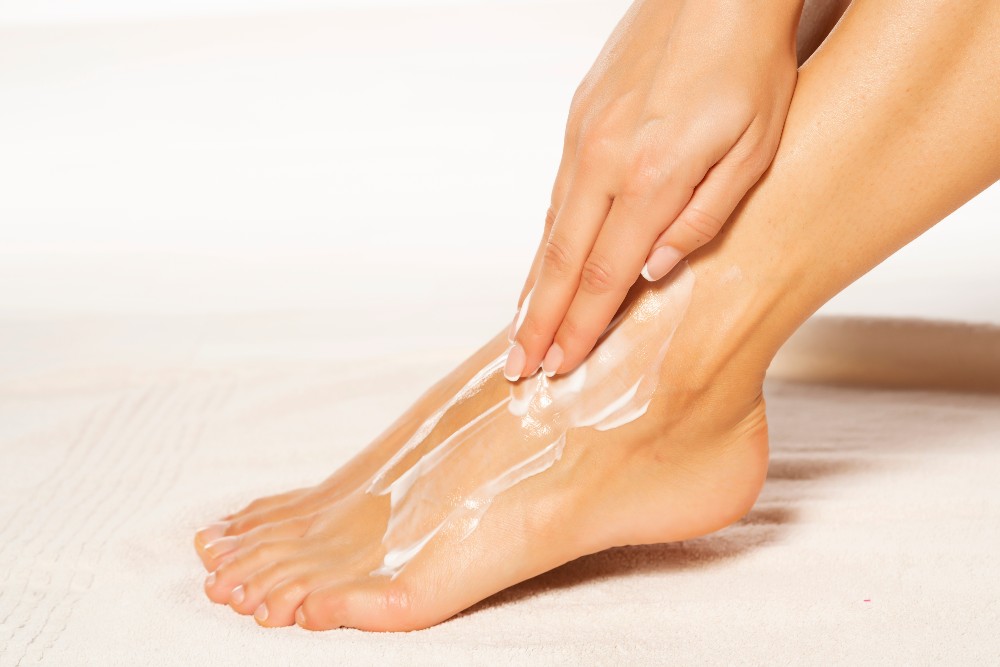15 Tips for Caring for Your Diabetic Feet
Diabetes is a disease that tends to cause foot problems. That’s because it can damage the nerves and blood vessels within the feet. When this happens, diabetics may lose sensation in their feet, as well as experience symptoms such as numbness, pain, and tingling.
If you have diabetic feet, you may be wondering what you can do to take care of them. We want to help you gain some insight on this subject, so we’ve compiled an all-encompassing list that you can use as a reference to ensure that you’re taking proper care of your feet every day.
Tips for Caring for Your Diabetic Feet at Home:
Taking care of your diabetic feet can be done in the comfort of your own home. Here are 15 tips to follow that we recommend for your diabetic foot care routine:
1. Bathe feet in lukewarm (not hot or cold) water daily.
Bathe your feet as you would a newborn: in water that’s not too hot, but not too cold. Lukewarm water is always best. Use your wrist or your elbow (or perhaps even a bath thermometer) to test the water.
2. Be gentle when washing your feet.
Again, we advise you to wash your feet as you would a newborn: gently. Use a soft washcloth or sponge, and don’t apply too much pressure. When you’re done washing them, carefully pat them dry.
3. Moisturize daily, but never between the toes.
Diabetic feet can be kept moisturized using a cream or lotion. Lightly rub the lotion into your skin, but avoid applying moisturizer between the toes because adding extra moisture in these areas could cause a fungal infection.
4. Cut nails carefully, straight across, and be sure to file the edges.
When you cut your toenails, take care to cut them straight across and not too far down. This can help you avoid ingrown toenails and the infection that could ensue as a result. While antibiotics can resolve an ingrown toenail infection, this is not guaranteed among people with diabetic feet due to poor circulation issues.
Filing the edges of your toenails is also a good idea. Be sure to file in one direction, straight across.
Consider cutting/filing your nails after you’ve taken a bath or shower, as this is when your toenails will be softest.
5. Never treat corns or calluses by yourself.
If you know or suspect that you have developed a corn or callus, do not try to treat this issue by yourself. Do not cut the corn or callus or apply medicine, including medicated pads; these and other solutions could increase your risk of infection. Instead, seek advice from our doctors, who will be able to provide the appropriate next steps.
6. Wear clean, dry socks every day.
Make sure that you have plenty of clean socks in your sock drawer because each new day calls for a clean, dry pair of socks. (By the way, the same goes for shoes. Never wear damp shoes; if your shoes get wet, give them at least a full day to dry. Keep at least two pairs of shoes on hand so you can switch between them throughout the week.)
7. Wear socks specifically tailored to those suffering from diabetes.
A sock is a sock, of course, but some socks are made specifically for those with diabetic feet. Diabetic socks usually do not contain elastic, feature ample padding/cushioning, and are constructed using diabetic feet-friendly materials such as moisture-wicking cotton or Merino wool.
8. Wear socks to bed.
If you find that your feet are always cold, we suggest wearing socks to bed. Socks can help regulate your body temperature throughout the night. Wearing moisture-wicking socks to bed will also help keep your feet dry, especially if you’re prone to sweating while sleeping.
9. Make sure feet are always clean and dry.
As mentioned above, keeping your feet clean and dry is an essential part of taking care of your diabetic feet. Invest in mild soaps and soft towels, as well as waterproof shoes, especially if you sometimes walk in the snow and/or rain.
10. Shake out your shoes and feel the insides before putting them on.
Having diabetic feet means that it’s important to reduce your risk of sustaining a foot injury, including one caused by a foreign object. By shaking out your shoes—and feeling the insides—before putting them on, you can prevent getting cut by something sharp that made its way into your shoes.
11. Consider using antiperspirant on the soles of your feet.
Your feet are full of thousands of sweat glands. Diabetes can cause excessive sweating, especially in the foot area. Applying antiperspirant on the soles of your feet can help control excessive sweating and keep your feet as dry as possible.
12. Never walk barefoot.
Whether you’re walking around inside or outside, wear footwear to protect your feet. Otherwise, walking around barefoot puts you at risk of sustaining cuts, scrapes, and other foot wounds that may seem minor, but can be dangerous if they don’t heal properly.
13. Don’t smoke.
In general, smoking is an unhealthy habit. Smoking and diabetic feet don’t go well together, especially on account of how the chemicals in cigarettes can constrict your blood vessels and cause further nerve damage. It may be hard to quit, but it’s never too late, and it’s always worth the effort. Talk to our doctors if you need help quitting.
14. Get periodic foot exams.
Regular foot exams can give you peace of mind, plus allow you and our doctors to discuss your diabetic foot care routine and any new or worsening problems you may be experiencing. A foot exam involves one of our doctors looking carefully at your feet, checking for nerve damage, skin changes, signs of poor circulation, and more.
15. Take a moment every day to examine your feet.
Use a magnifying hand mirror to carefully look at the bottom of each foot. Be on the lookout for cuts, sores, blisters, nail issues, swelling, and other signs that could indicate the presence of a new or worsening problem.
When Should You Come to Our Office?
If you notice any issues that make you feel worried about your diabetic feet, it’s important to call our office right away. The sooner your feet can be evaluated, the better. Ignoring a foot issue could potentially exacerbate your symptoms and/or cause complications. Our doctors can give you a thorough evaluation, address your concerns, and answer any questions you may have. Remember, living with diabetic feet means that you must take extra care to keep your feet healthy and clean, plus prevent foot issues from arising.
Contact Us Today
Our team here at Foot and Ankle Specialists of Central PA cares about you and your overall well-being. Please contact us today if there’s anything we can do for you regarding your diabetic feet or any other foot/ankle-related issue. Our knowledgeable and friendly podiatrists are passionate about giving you their utmost attention and providing unparalleled care right here in Mechanicsburg.
You can quickly and easily book an appointment by calling us at (717) 620-8225 or filling out an appointment request online. Thank you for putting your trust in us, and we look forward to seeing you soon at 4 Flowers Drive, Suite 2.


